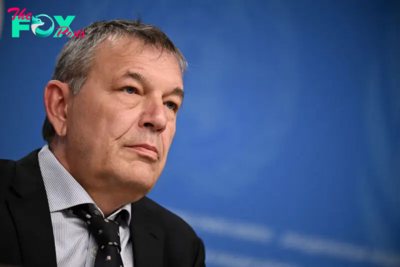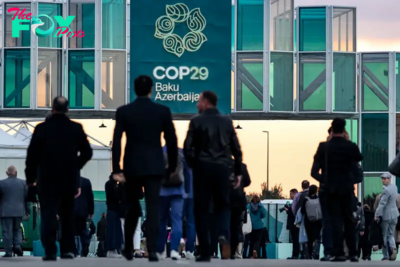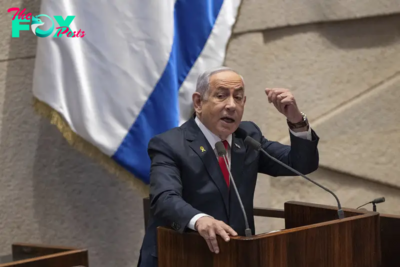World News
How World Leaders Are Reacting to the Six-Month Anniversary of the Israel-Hamas War
On Oct. 7, Hamas militants stormed into Israel from Gaza, killing around 1,200 people, most civilians, and taking more than 250 hostage, igniting a devastating war.
In the six months since then, Israel responded by invading and bombarding Gaza, killing a reported 33,000 Palestinians, a majority women and children, according to the United Nations. Israel’s attacks and control of humanitarian aid into the territory have now, according to reports, pushed one million people to the brink of famine.
The crisis has prompted protests and legal challenges—including one filed by South Africa at the U.N.’s highest court in which judges issued an interim order in January that it was “plausible” Israel was committing acts of genocide. Israel strongly rejects the claim.
Israel’s allies have increased their criticism and pressure on the country to protect civilians, especially after the Israeli Military fired missiles that killed seven aid workers—six foreign nationals—working with the NGO World Central Kitchen on April 2 in what the Military called a “grave mistake.”
After the deaths, President Joe Biden gave Israeli Prime Minister Benjamin Netanyahu an ultimatum to take immediate actions to protect civilians and allow food aid into Gaza or the U.S. will change its Military campaign support (the U.S. gives Israel billions of dollars a year in Military aid). Israel responded by opening up new aid routes into Gaza.
At home, Netanyahu faces massive protests calling for a hostage deal from families of the remaining 133 hostages, with some joining anti-government protesters to push for him to step down.
Read More: Israel’s Military Recovers the Body of a Hostage in Gaza During Night Raid
The Israeli leader said in remarks on Sunday: “Today we are marking six months of the war. The achievements of the war are considerable.”
He went on to say: “We are determined to achieve total victory, to return all of our hostages, to complete the elimination of Hamas in the entire Gaza Strip including Rafah, and to ensure that Gaza never again constitutes a threat to Israel.” Netanyahu noted how he has “made it clear to the international community” that ”there will be no ceasefire without the return of the hostages.”
Israel and Hamas are reportedly engaging in negotiations on a deal through mediators.
Now that the war has reached its six-month mark on April 7, here’s what world leaders are saying.
U.K. Prime Minister Rishi Sunak
The British leader released a statement calling Oct. 7 “the most appalling attack in Israel’s History, the worst loss of Jewish life since the Second World War.” Sunak said Israeli wounds remain unhealed and the toll on Gaza civilians keeps growing, with loss of life “on an awful scale.”
“We continue to stand by Israel’s right to defeat the threat from Hamas terrorists and defend their security. But the whole of the U.K. is shocked by the bloodshed, and appalled by the killing of brave British heroes who were bringing food to those in need,” Sunak said, referencing three British citizens killed in the World Central Kitchen attack.
“This terrible conflict must end. The hostages must be released. The aid—which we have been straining every sinew to deliver by land, air and sea—must be flooded in,” Sunak continued. “The children of Gaza need a humanitarian pause immediately, leading to a long-term sustainable ceasefire. That is the fastest way to get hostages out and aid in, and to stop the fighting and loss of life. For the good of both Israelis and Palestinians—who all deserve to live in peace, dignity and security—that is what we will keep working to achieve.”
German Foreign Minister Annalena Baerbock
Baerbock said in a statement posted on X, formerly Twitter, that six months ago was a “dark day” when Hamas attacked Israel, killing and kidnapping hostages, “out of hatred.” She vowed to “not tire in our efforts to bring them all home to their loved ones in Israel.”
“Hamas has brought war and endless suffering upon Israelis and Palestinians with its terror. It must end this suffering, release the hostages immediately, and lay down its weapons,” the statement concluded.
Jordan Ministry of Foreign Affairs and Expatriate Affairs
The Foreign Ministry of Jordan posted a statement in Arabic on X, which can be translated to English by the social media platform, on Sunday. The statement said that two of its ministers focused on Palestinian affairs met to discuss “stressing the necessity” of stopping Israel’s war in Gaza “and the necessity of Israel’s compliance with the rules of international law and international law: International humanitarian aid, ensuring the protection of civilians, and allowing the entry of adequate and sustainable humanitarian aid to all parts of the sector.”
U.K. Foreign Minister David Cameron
Cameron released a video statement on Sunday demanding that Hamas release hostages, including two British nationals—"every one of them, right now."
In an opinion piece for The Sunday Times, Cameron wrote that “Israel has a right to self-defence that we should support. Of course our backing is not unconditional: we expect such a proud and successful democracy to abide by international humanitarian law, even when challenged in this way.” He stressed the need for Israel to facilitate more humanitarian aid into Gaza and advocated for a temporary ceasefire.
“I desperately want this coNFLict to end, and for the people of Israel and the people of Gaza to be able to live their lives in peace and security. We must all continue to work towards this aim, but I believe that failing to prepare for continued coNFLict will lead to further suffering and avoidable loss of innocent lives. The U.K. stands ready to play its part,” he said.
U.K. Deputy Prime Minister Oliver Dowden
Dowden told Sky News in an interview on Sunday that “of course Israel has made mistakes, and has made big mistakes, and we should them to account for that, but we are holding them to a very high standard,” when asked about efforts from the public, lawyers, and some lawmakers to pressure the U.K. to suspend arms sales to Israel.
U.N. Secretary General António Guterres
The U.N.’s leader said in a post on X on April 5 acknowledging the six-month anniversary of the attack: “I mourn with Israelis for the 1,200 people, including many women and children, killed in cold blood.”
In a video message on Sunday, the U.N.'s leader Guterres said Oct. 7 “is a day of pain for Israel and the world. Nothing can justify the horror unleashed by Hamas. I once again condemn the use of sexual violence, torture and kidnapping of civilians, and call for the unconditional release of all the hostages.”
Guterres has also continually called for a humanitarian ceasefire and said in another video message on April 5 that “nothing can justify the collective punishment of the Palestinian people.”
Irish Minister for Foreign Affairs and Minister for Defense Micheál Martin
In an op-ed for the Sunday Times, Martin honored the victims of Hamas’ attack on Israel and the hostages that still remain in Gaza.
“Recognising the extent of the trauma and terror on Oct. 7 cannot blind us, however, to the reality of the utterly disproportionate Israeli military response to the Hamas attacks, which has caused death and destruction in Gaza on a catastrophic scale,” Martin wrote.
“Ireland’s priorities in the current crisis have remained clear and consistent: an immediate ceasefire, the unconditional release of hostages, full, safe, and unhindered humanitarian access, and a massive and sustained scale-up in humanitarian aid,” he added.
-

 World News2d ago
World News2d agoLandmark Bill to Ban Children From Social Media Introduced in Australia’s Parliament
-

 World News2d ago
World News2d agoAmerican and Australian Tourists Die in Laos After Drinking Tainted Alcohol
-
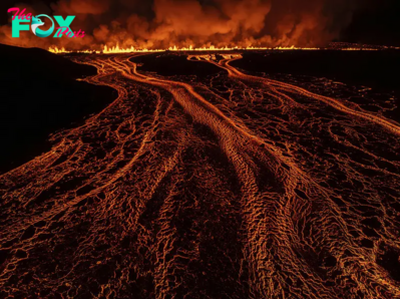
 World News2d ago
World News2d agoSee Photos of the Seventh Volcanic Eruption on Iceland’s Reykjanes Peninsula in 12 Months
-

 World News2d ago
World News2d agoMuhammad Yunus on the Race to Build Bangladesh 2.0
-
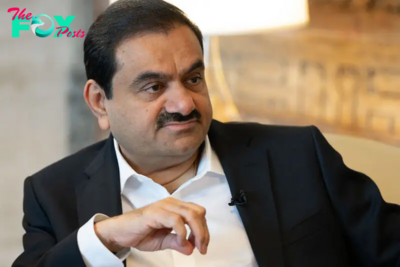
 World News3d ago
World News3d agoU.S. Charges Indian Billionaire Gautam Adani With Defrauding Investors
-
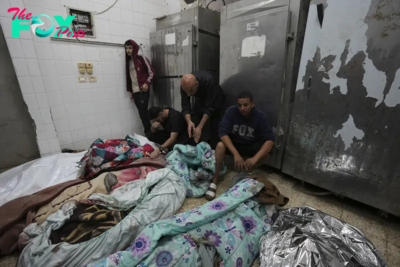
 World News3d ago
World News3d agoU.S. Vetoes U.N. Resolution Demanding a Cease-Fire in Gaza
-
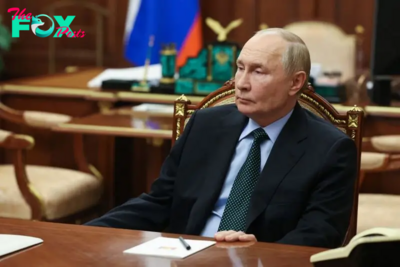
 World News3d ago
World News3d agoPutin Signs New Doctrine Lowering Nuclear Weapons Threshold in Warning to U.S.
-
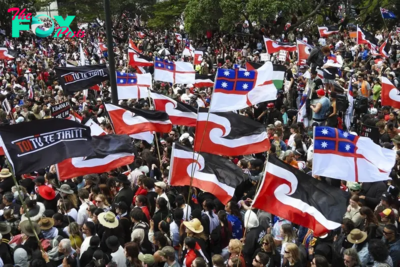
 World News3d ago
World News3d agoTens of Thousands Rally at New Zealand’s Parliament in Support of Māori Rights
